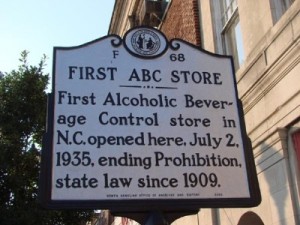Revisiting the Modernization of Alcohol
When the hum of state aircraft dissipates, and the clouds clear over the horizon the staff of the Program Evaluation Division (PED) can be found juggling other projects. Interestingly these projects are not just limited to projects on the current work plan but can include much older PED reports.
What I mean is…at any given point a member of the legislature or a legislative agency can (they sometimes do) ask for additional information in the form of a follow-up query or even statistical relationships. Sometimes this involves revisiting older reports and providing some of the key recommendations. Last week I had the opportunity see what these follow-up requests were all about.
In April 2010, PED published their report, Selling 25 Underutilized Aircraft May Yield Up to $8.1 Million and Save $1.5 Million Annually. In May they were asked by members of the Joint Legislative Program Evaluation Oversight Committee to perform a follow-up report that answered specific questions, offered recommendations and compiled fine-tuned data.
You may be wondering why there was a need to publish a follow-up so soon after the initial report publication date. The answer really depends. What I have been noticing is that legislators prefer lots of numerical data and sometimes they like it presented in a certain way. To some extent this was the case with the follow-up aircraft report.
It is important to note that these follow-ups and specific data queries are important because they can result in changes to legislation or supplement ‘active’ legislation.
Carol Shaw, a PED Principal Program Evaluator, has mentioned that sometimes evaluations have a “longer shelf life”. This is especially true for the PED report titled North Carolina’s Alcohol Beverage Control System is Outdated and Needs Modernization, published in 2008.
Within the past two weeks I have seen the House and various committees re-visit the findings and recommendations of the PED report. On Tuesday I had the opportunity to be on the House floor, with some of the PED staff, as the House passed HB 1717. HB 1717 is a reform bill that would modernize North Carolina’s Alcohol Beverage Control System (ABC Stores). It was interesting to see live debate on various areas of the bill; it was also interesting to see the different ways legislation can be impacted by how its passed in committee.
Carol’s statement about a “long shelf life” is especially true given the date of the ABC Stores PED report. Just this past week a legislator asked for specific data relating to the ABC report. The request involved ascertaining what statistical relationships were present between some of the reports variables; some of these variables included the population of counties, profitability of ABC stores, and the number of ABC stores in the county. One of my duties was to compile this data and have it ready for PED as they ran various statistical tests. I had worked with SPSS before in Dr. Berner’s courses: Introductory Policy Evaluation Methods and Methods for Policy Analysis courses but watching PED use SPSS was a different ball game entirely.
Compiling the data and using SPSS was one component of these follow-up reports that PED staff address daily. I was fortunate to see the nature of some of these requests and contribute. One can only imagine the nature and variety of data requests as the Senate (SB 1112) now grapples with ABC reform legislation.
*The views expressed on this blog posting are mine alone and do not necessarily reflect the views of my employer.



